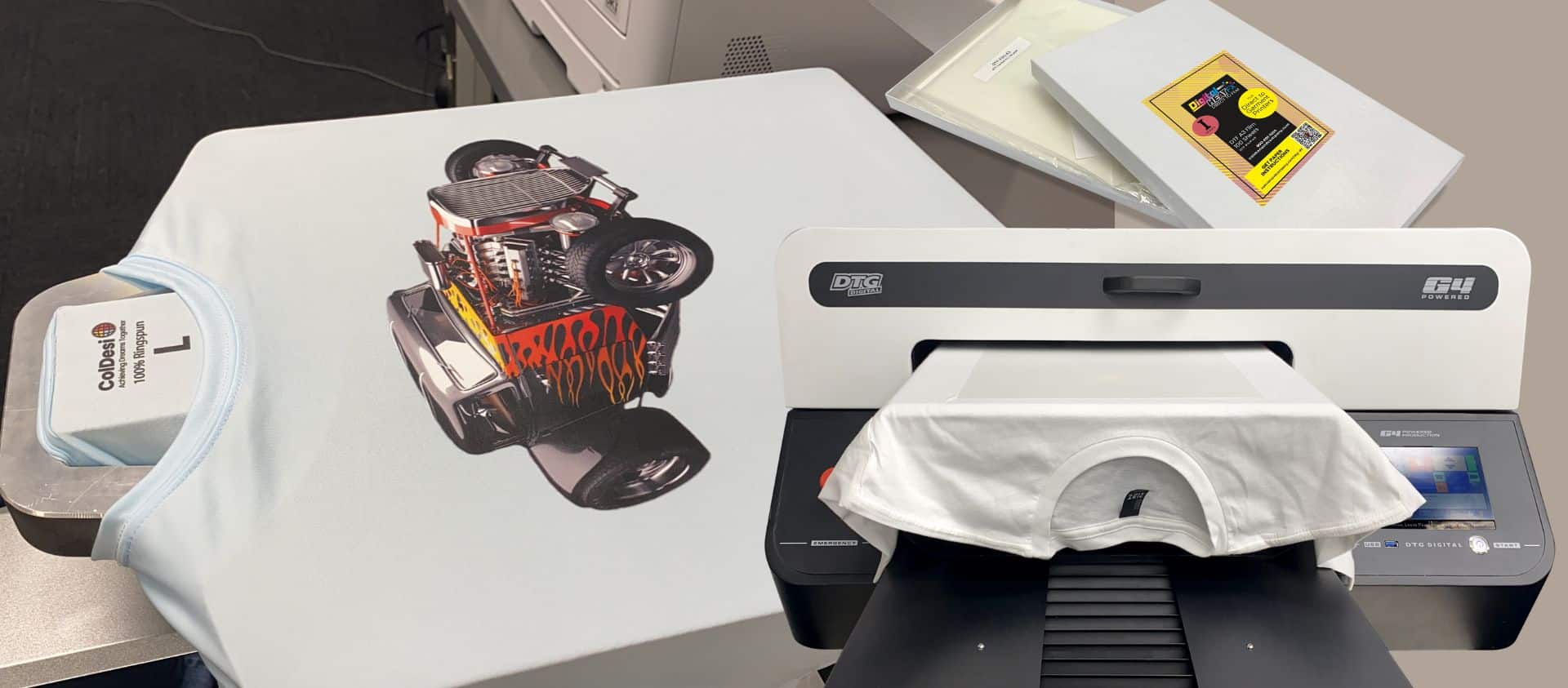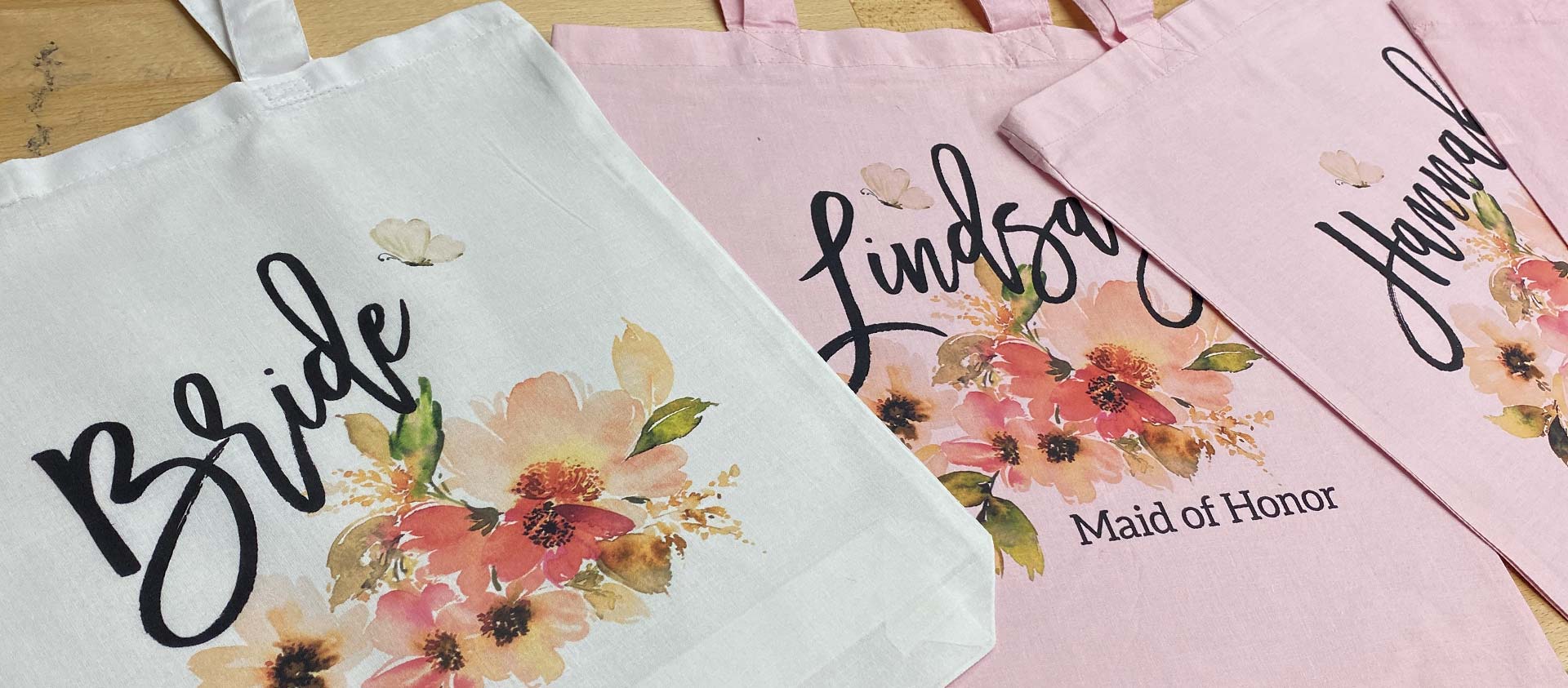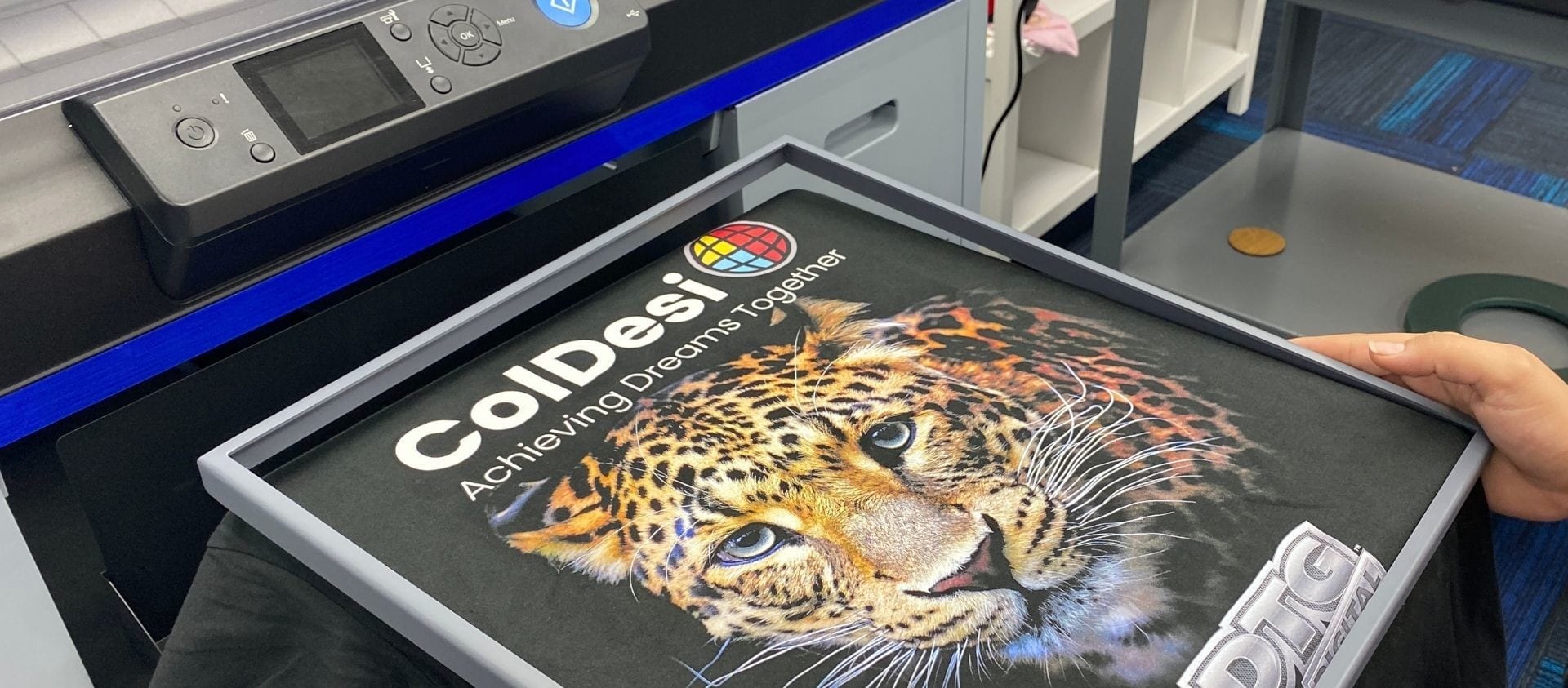As a business owner, you’re probably always looking out for great for marketing and business books. And, there’s a great book that you may want to check out. In the book “Influence” by Robert Cialdini, he talks about the psychology of persuasion, which is not manipulation.
Throughout our 3-part series on upselling, we’ve avoided the word “sales.”
That’s what you’re doing already. You’re not getting paid for making t-shirts or physically doing embroidery. You only get paid when you make a transaction, and someone gives you money.
We’re not talking about spending three hours convincing someone they cannot leave your shop without placing an order. We’re talking about ways to talk to your customers that will inspire and motivate them to either make a purchase or a larger purchase than they thought they would.
The fact is people can buy apparel anywhere. There is also someone who is likely just as good, just as cheap, and just as available as you are. Your job is to show customers that you are an expert, that you make a great product. These are ways to set yourself apart from your competition.

Reciprocity
Socially, when someone is given something or favor is done for them, they feel an obligation to provide something back. As an example, you go into a bakery, and they provide you with a free sample of a cookie, you feel the need to buy something.
While not everyone will have that need to buy something, 100% will respond in some way. When you’re learning reciprocity with your customers, you need to learn what are some things that you can do for them that will help you upsell?
Sometimes it may be a combination of things. In the episode #69 of the Custom Apparel Startups podcast, customapparelstartups.com talked about a free cap, but it may also be something that encourages people to stay in your store longer. With reciprocity, you also have to match what it is you expect to get back.
If you give away one rhinestone, you shouldn’t expect anything back because it has no value. However, you can give away a rhinestone sticker sample, perhaps with your customer’s logo or something standard. Then tell the customer that you also do rhinestone apparel and could do stickers, shirts, bags, etc. And ask for their opinion on the sample. Find a way to give away something for free and request something in return.
It should be very deliberate about what that is. If you give away a free cap or patch with an order, that’s what you want customers to order from you. Even if they don’t have the budget, because you gave that item to them for free, they’ll feel more compelled to refer you to someone.
Consistency
People like to remain consistent over time, especially when we’re public about it. People are more likely to adhere to their actions, beliefs, habits when they’ve publicly expressed it. As an example, when you bought your phone, you may have posted about how great it is on social media.
It becomes part of your identity whether you’re an Android or iPhone user. When you go to buy a new phone, you’re more than likely to stay consistent with that brand.The reason we’re talking about that is if you can develop that kind of consistency in your customers it makes it easier to keep them as customers. It snowballs and becomes easier to add that cap to the next order.
This is also why it’s important for you to ask customers to share on their social media channels their final product from you or to leave a review on your Facebook page. Work with them to get them to share publicly that you’re their person.This also helps you understand why a customer would stay with another t-shirt vendor.
They’ve committed. While different from upselling, it can help you strategize to get them to switch their business to you.
Social Proof
Then we’re going to make a decision, we’re likely to make the same one other people have made. If all of your friends have iPhones and this is the first time you’re going to be buying a phone, you’re more than likely to buy an iPhone as well
.Another example would be at a food truck fair. If all the trucks have two people in the line-up, except one which has six people, you’ll be convinced that it has something better. It may be a longer line but may be worth the wait.
How does this come into selling? You need to facilitate an environment where you have social proofs. Reviews on social media and the internet are social proof.
If you work with a local dance team, get pictures of their team wearing your shirts and post it in your shop. Also post those pictures online. It can also happen in real-time. For example, going to a local chamber of commerce event. Perhaps you make apparel for a few of the other companies attending the event. As you’re introduced you can say, “I do custom apparel” and perhaps you’re standing next to one of your customers, “You know Mark, I do all his stuff.”

Likability
This can be simple, but also a challenge. It can be as simple as being nice to your customers. Such as, answering the phone in a way that makes it clear you’re a business, and you’re happy they called. It can also be as simple as shaking someone’s hand or sending a thank you note with their order. Treat your customers as if they were your friends.
If you don’t feel good talking to someone, you’re not going to buy from them. As a business owner, this works in a full circle. It’s not just about you being likable to your customers but being likable as your own personal You will get referrals from people who will never buy from you.
This goes for the people you’re ordering supplies from as well. When you talk to them over the phone, you should be nice. They also get phone calls from people who say, “Do you know anyone in New York who does rhinestones, because I only do t-shirts, but I need someone who does bling.” Guess who the supplier is not going to send referrals to? Anyone not likable.
You’re more likely to be trusted, to be seen as an expert, to hear the word “yes.” When you go to your customers and say, “We got these new shirts in for 2018, they are $5 more a piece, but trust me on this the shirt is much nicer” they’re more likely to trust you.
People buy more from people and brands they like.
Authority
People also tend to obey authority figures. By authority, we can extend that to any recognizable name or brand. If Apple turns around and recommends another company, people are likely to trust that recommendation and that business would get a lot of new customers.
How do you do this on a local, small business scale? Authority within your town. Do you make shirts for the mayor’s spouse? Is there a large business, league, or school you do work for?
You might just name drop. “I just finished a really big order for the Tampa police department. I’m ready to do yours if you’re ready.”What you’re saying is that this other company or organization has tried me out, they approve, they buy my stuff, shouldn’t you?
This is a great reason to join local social groups and chamber of commerce. If you’re participating in events, you can turn around and say “I do all the shirts for the Tampa Bay Attorneys Alliance.”It’s even better if you can get those organizations permission to post about them on your social media or have them write you a review.
What if you’re brand new and you don’t have any of that? – You just bought a cutter and a press. Go out and find a local celebrity or local business that you can get to do some business with you. It might just start off by giving them something for free and asking them to give a positive review.
You can also use things like, “I have a meeting with the local Attorney Alliance, and I can stop by your office after that.” You don’t want to deceive, but if the local University is giving you a meeting with them, it says something about your company already.

Scarcity
Things are more attractive when they’re limited. Why do you think Starbucks only does pumpkin spice lattes for one season? It’s not as if the ingredients are especially expensive or unavailable the rest of the year. They’ve identified that if they only offer it for a limited time, then it’s more special.
It causes people who normally don’t buy to buy.It’s a great way to talk to your customers about the availability or lack of availability. “I’ve got 200 of these shirts in the back, but I’ve got 12 of this new line that just came out.”Scarcity doesn’t have to be false. We talked about it in the last blog post as well. You create an order of caps that you think you can sell again. If the customer needs 60, you order 75 (and there’s a lot of reasons to order more, from ensuring you have extras for mistakes, perhaps you get free shipping or case pricing).
Now you have an extra limited amount of these caps.When you talk to someone that you’re trying to upsell to, “I can get you any cap in this catalog. However, I’ve got 15 of these in stock and can give you a special price on.” They may have said no before, but since they’re getting a deal, they’re excited about the idea.
It can also build on the idea of reciprocity. “Because you’re already a good customer of ours, I’m going to do this extra thing for you. I don’t have a lot, but I want to offer them to you at a great deal.”Scarcity can also be on your time. If June is busy for you, you can offer a coupon deal if they order in May.
When you’re talking about the deal, you let your customers know it’s only available from May 1-15. “I only have room for about 2-3 more jobs this month. If you order now, I can get you into one of those slots and save you some money.”The time and the deal are scarce.
Each one of these things works great by themselves. They will help you sell more. Once you start combining them, you’ll notice a big difference. It’s all going to help you get one more sale.
When you improve your sales, it’s often not just because you did one magic thing. You listen and learn, you attempt to upsell. It snowballs, and you get more referrals and opportunities.
All of this only works when you’re also delivering a good product, you’re confident in the product, and you set appropriate expectations for your customers.
Have a good business!






